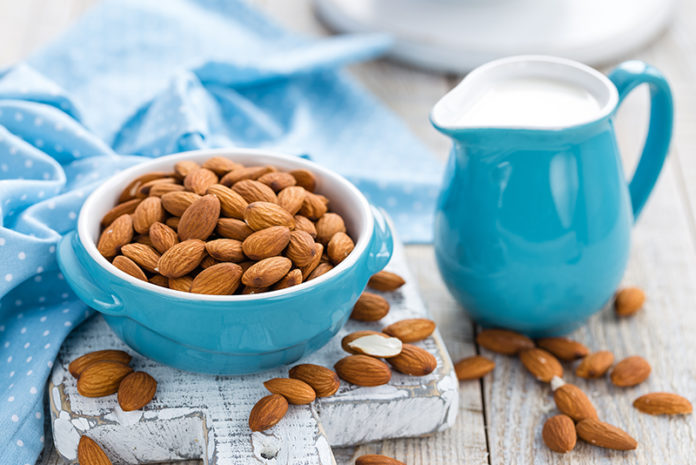Nutrition has changed a lot over the years, especially in the last few decades. Most of the “healthy” knowledge we picked up in school, and from mainstream media, may not be as helpful or as accurate as once believed.
Milk, for instance, is full of vitamins and nutrients that are necessary for our bodies to function. But just like anything else, milk is only good for us if our bodies can actually utilize it. For anyone who is lactose-intolerant, drinking milk is actually quite harmful. According to the National Library of Medicine, an estimated 65% of people around the world are lactose-intolerant.
Alternative milks – made from beans, nuts, and even oats – have successfully replaced the cow and brought milk back into the daily diets of many people. The new $64,000 question on the table is whether these “alt” milks are actually good for us.
Strength in Numbers
The popularity of alternative milk in the United States is evident in the numbers. A study in 2018 shows a 65% rise in non-dairy milk sales over a five year period.
Almond milk is still the most popular choice, controlling almost 65% of its market.
Other options soon arrived on the scene, specifically oat milk. The first notable brand of the plant-derived milk substitute was Oatly. The product took off so wildly in 2018 that the company simply could not keep up with the demand and left much of New York and the East Coast “out of stock”.
The continued rise of alternative milks have led to a drop in sales for the regular dairy industry by over $1 billion.
The Good
Even with the recent and sudden popularity of oat milk, almond milk is still the reigning champ for many Americans. The benefit of almond milk is that it’s dairy-free for those who are allergic to cow’s milk and can be low in calories. Coconut milk, like almond milk, is also dairy-free and contains vitamin D and B12.
Soy milk is another popular non-dairy milk option. It is rich in protein, providing you with 8 grams per serving. It also contains less fat than almond and coconut milk. Since it’s plant-based, soy milk is a great choice for vegans and vegetarians.
Oat milk is another ideal option for vegans and vegetarians. One of the best benefits of oat milk is that small children can drink it without losing important calories or fats needed for growth. Oat milk is also a great source of fiber and may even help lower blood sugar and cholesterol.
Another alternative milk option gaining some traction in grocery stores is hemp milk. Not only is it dairy free, but the hemp seeds are rich in short chain Omega-3 and Omega-6 nutrients. Rice milk is also available in some grocery stores and is usually fortified with calcium and B-vitamins.
The Bad
Almost all alternative milk options have the same shortcoming – they are all much lower in protein than dairy milk. Additionally, the fat-soluble nutrients in almond milk are only absorbed when the beverage is paired with a fattier food.
Coconut milk is probably the highest in fat of the non-dairy alternatives. Another downside to almond and coconut milk is the potential of added calories and sugar if you choose a flavored variety. One serving of the vanilla-flavored almond milk contains 80 calories, 14 carbs, and 13 grams of sugar.
Soy milk, for all of its benefits, can also be harmful if you are sensitive or allergic to soybeans. This particular allergy is actually fairly common: Drinking this alt milk if you are soy-sensitive can cause headaches, fatigue, bloating, and abdominal discomfort. Soy also contains high levels of phytoestrogens, which have their own lengthy, complex list of pros and cons.
Rice milk is highly discouraged for small children because it contains very low levels of arsenic. It is also much higher in sugar content, than other alternative milks.
The Sum-Up
There really is no definitive answer just yet of whether alternative milks are actually good for you. It is both a yes and no answer, depending on you.
If you choose to include a non-dairy milk in your diet, you may also need to consider adding another protein source to make up the difference.








